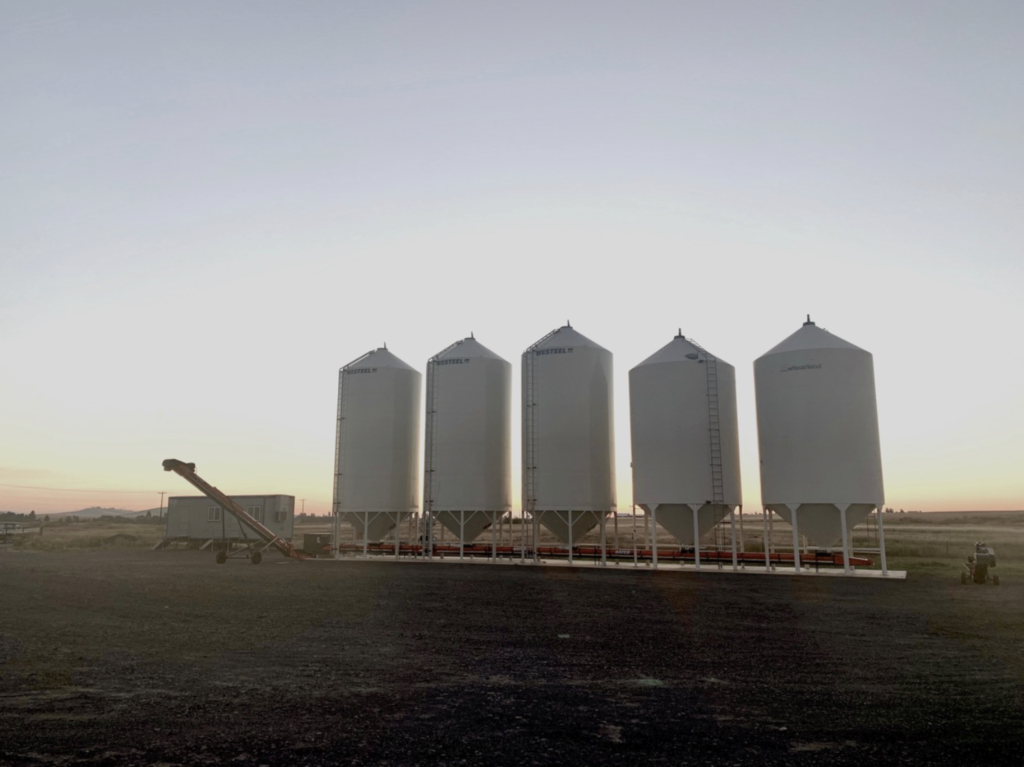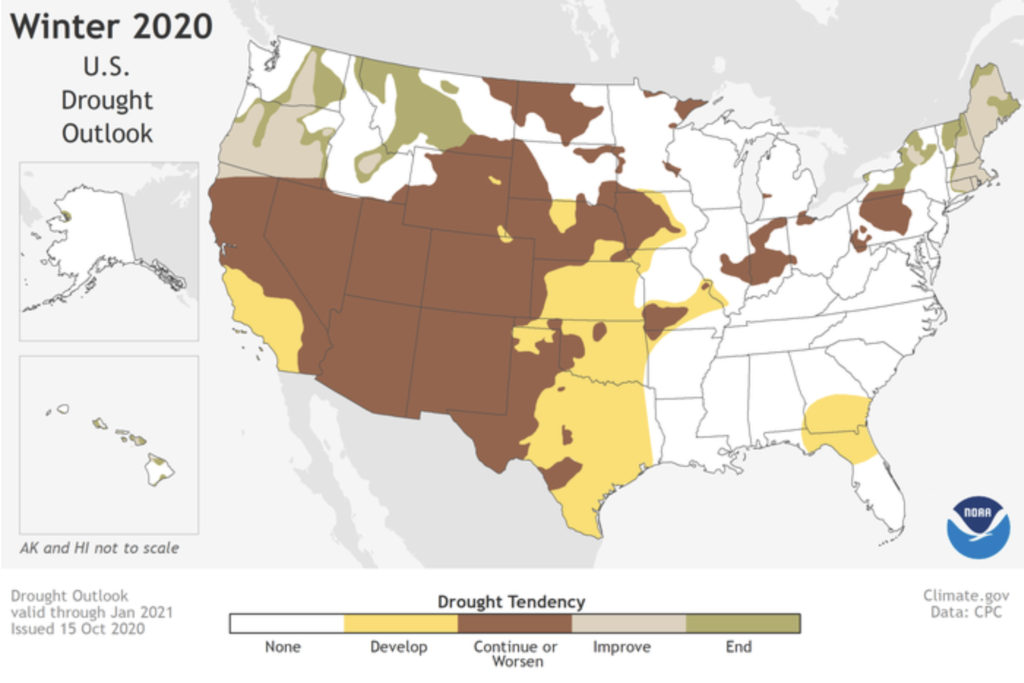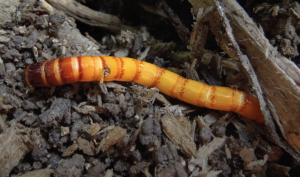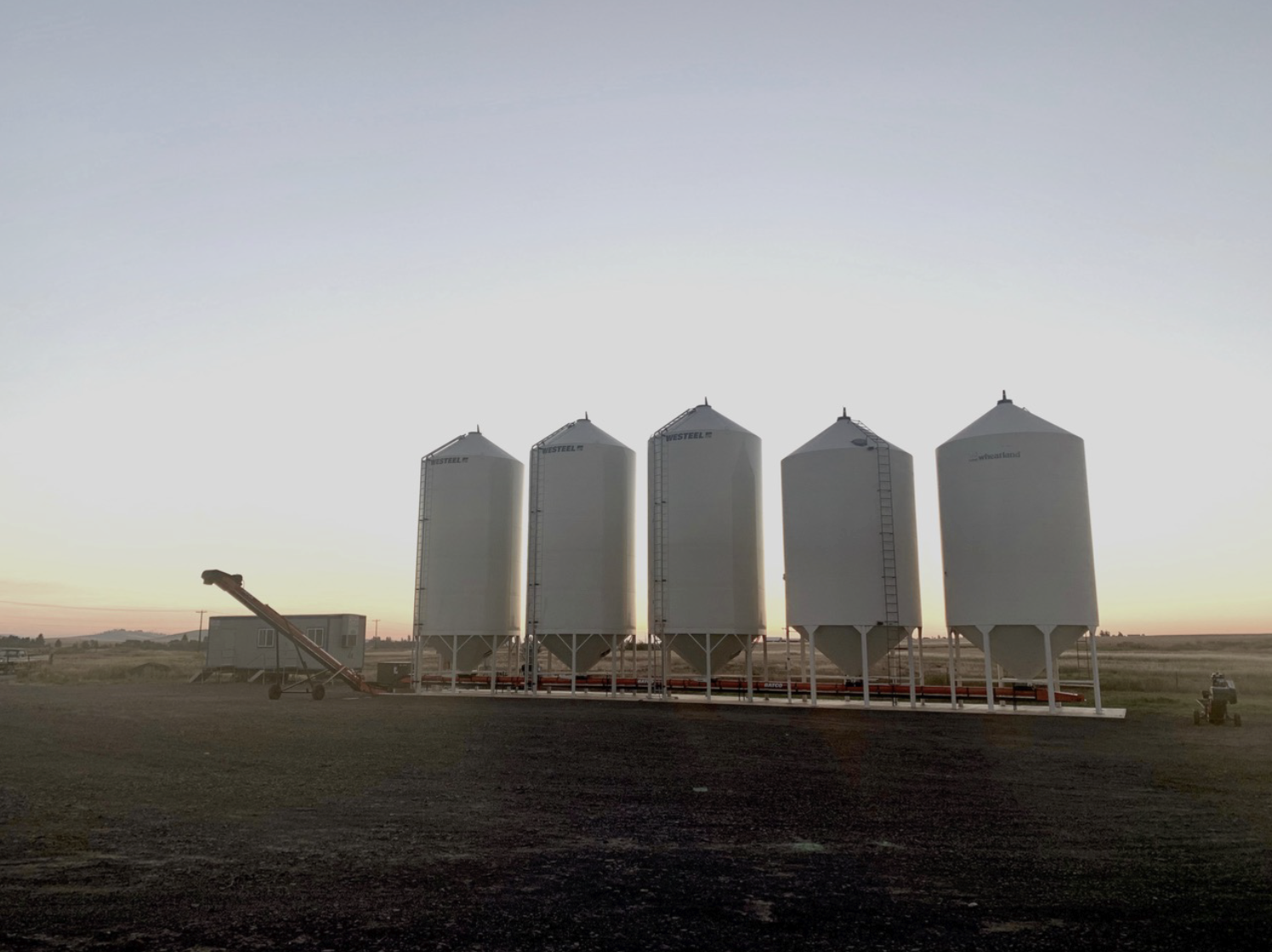
A Comment from Dan on Customer Loyalty
I don’t write every article in the newsletter, but for this particular issue I wanted to take the time to
put my own thoughts out there as the C.E.O.
Recently, we’ve gotten some questions from customers about a competitor’s newly-instituted
loyalty reward program. While I understand the impulse to compare seed quality and the costs and
benefits of doing business with two competing organizations, McKay Seed is focused on doing
what we do best. That means providing consistently superlative quality and service to our
customers at the best price possible based on our costs.
In some years recently, we’ve been priced lower than our competitors; in some years we’ve been
higher. We’re not going to respond to every gimmick that enters the marketplace. Instead, we’re going to continue perfecting our our seed and our service. We know that you have a choice when
you’re buying seed, and we believe in a healthy, competitive marketplace. I want to thank you for
taking the time to read our newsletter and I want to personally invite you to call me at the Almira
office if you have any questions on this issue or on anything else. We greatly value your continued
loyalty and appreciate the opportunity to earn your business every year.
Wheat Market Going Strong
At time of writing, Portland price on wheat stands at $7.65 – the highest point so far in 2021. Though
no one has a crystal ball, many have speculated that the market has room to run. There are several
factors driving the bull wheat market.
La Niña, a global weather pattern that occurs during periods of colder surface temperatures in the
Pacific Ocean, has been at play during the fall of 2020 and continued into 2021. The National
Oceanic and Atmospheric Association (NOAA) predicts cooler-than-normal temperatures for the
Pacific Northwest and increased rainfall as well. In contrast, most southern states and parts of the
midwest are likely to experience the opposite effect. In fact, the NOAA’s drought outlook for the
United States is particularly favorable for the Pacific Northwest and New England, and daunting for
much of the rest of the United States.

Additionally, the USDA projects that the global wheat trade will top a record 193 million metric
tonnes. Some experts even say that projection is on the conservative side. According to William Tierney, PhD, “the USDA’s Feb. [estimate] of global wheat trade has been too low in 9-out-of-thelast-
10 years.”
Reardan Outlet Drives Market Quality
In 2020, Highline Grain invested more than $500,000 in an improved seed handling and treating
system for their Reardan location, according to sources close to their
organization. Although we don’t know the exact expenditures, we’re told that
it was a significant investment in improving the quality of their seed treating
capability.
MSC-Reardan’s seed treatment coverage was a positive factor for customers, and has inspired our competitors to make improvements in their systems.
According to growers in the area, the seed distributed from our Reardan
Outlet had outstanding seed treatment coverage. Agronomist and Certified
Crop Advisor Ariel Schulz reports that multiple growers commented
positively on our seed. “I think there had been some concern that, with seed
being cleaned and treated in Almira and then trucked to Rosalia, that the
coverage wouldn’t be strong.” That wasn’t the case, though, said Schulz.
“Guys were really happy with it.”
Our presence in the marketplace and the strong quality of our seed bears out our company
philosophy on competition. “When you have multiple groups in the marketplace, the competition
drives all of them to do better,” said C.E.O. Dan McKay.
“Whether or not their group likes us being there, I think farmers have to see it as a positive. It’s
always good to have options,” McKay said. “Price is important, but it should not be the determining
factor for you as you establish next year’s income.”
Spring 2021 Varieties
This spring, we’ve got an all-star lineup of wheat and barley seed available. Varieties from
Washington State University, WestBred, AgriPro, and Highland Specialty Grains are some of the
strongest options on the market. In general, we feel that our lineup of spring options will provide
growers a tremendous diversity of choice. Not all of these varieties will be available in all locations,
so please call your local branch and ask what might be available this spring if you have questions.
Finally, we anticipate that with the strong wheat price and uncertain weather (especially in the
Palouse region), many growers might be seeking more spring wheat seed than normal due to
replant requirements.
Soft White
Ryan: Early maturity and heading while maintaining strong yield potential no matter the year.
Intermediate reaction to stripe rust and may need one fungicide application on heavy pressure
years.
Seahawk: Late-maturing with very high yield potential in longer-season years. Excellent stripe rust
resistance, and the only soft white spring in the PNW with YR 5 and YR 15 genes for resistance.
Tekoa: Good balance between Seahawk and Ryan of several traits and characteristics. Similar
falling number results to Ryan. Excellent yield potential winning several trials in 2020.
WB-6121: Solid early variety with excellent standability. 2-gene introgression into Nick background
that gives it excellent stripe rust resistance. Very widely adapted, a consistent yielder in several
locations and conditions.
Whit: Solid yields under high rainfall, still a good option with a good balance of disease resistance
and other agronomic traits.
Club Wheats
JD: Tall club that has a better fit in the mid- to low-rainfall zones. Can lodge under higher fertility
and rainfall, and also better suited for a dryer year.
Melba: Higher yield potential but less forgiving than JD, shorter and better standability. Has an
excellent fit in the Palouse under high rainfall.
Clearfield Wheats
WB-1035 CL+: Fills a very specific need in being a 2-gene Clearfield. It will need multiple fungicide
applications in a heavy pressure year. Based on the variety Nick.
Hard Red Wheats
Alum: Excellent all around variety with a good balance of traits. Good protein content and yield
potential. Has an excellent fit in most rainfed environments and obviously good aluminum toxicity
tolerance.
AP Venom: The highest yield potential of a DNS under high rainfall and irrigation. Lower protein
content than WB lines and showed some susceptibility to stripe rust in 2020.
Expresso: Excellent irrigated variety with a very high protein content and standability. Now
outshone in yield by some newer releases but still gives excellent potential for the fall-planted DNS
acres.
Kelse: A tough dryland DNS variety, seems to yield well in dry years while having moderate protein
content. A good combination of agronomic traits suited for dryland DNS production.
WB 9662: A direct replacement for Expresso. As a backcross line to Express it is later than
Expresso, but carries the same stripe rust resistance and slightly improved winter tolerance than
Expresso. Also has very good protein content.
WB 9668: The highest protein content available in any DNS in the PNW. Consistently makes protein
in most conditions and is the safest bet for hitting protein goals. A good yielder with early heading
and maturity.
Feed Barley
Altorado: A direct replacement for Champion, similar in almost every way. Highest test weight
offering and the toughest under stressful conditions of the other feed lines.
Claymore: Highest yield potential under irrigated and high rainfall conditions. Tallest variety of the
group but still stands quite well. Most similar to Xena and brings excellent FHB tolerance.
Oreana: The best stripe rust tolerance of the barley lines while giving excellent yield potential.
Yields well even under dryer conditions. Uniquely short compared to the other feed varieties and
brings excellent standability.
Forage Barley
Stockford: The trusted standard in forage barley for over a decade. Good all-around forage
production as well as beautiful plump grain for a forage barley.
Vaquero: Up to 4-6 inches taller than Stockford. Still manages to stand well and better than other
hay varieties. Excellent tonnage and forage quality, improvements over both Stockford and
Haymaker.
Seed Treatment Choices
In the past several years, we’ve spent a lot of time testing and perfecting seed treatment options for
each of our locations. We believe strongly that each of our retail locations faces different threats,
and that our seed treatment needs to be customized to address those threats. We will be offering our Synergy seed treatment from Albaugh again this year, but there are a few new choices on the market that we’ve decided to integrate into our lineup as well.

Essentially, every grower is going to have several choices this spring: Synergy seed treatment by itself, Synergy overtreated with Lumivia from Corteva agriscience, and BASF’S Teraxxa seed treatment with BASF’s F4 fungicide. Of these, most growers are probably the most familiar with our Synergy blend, so we won’t spend time rehashing that formula here. However, both the Lumivia and the Teraxxa are new products this year, so I did want to spend some time on those.
The BASF package of seed treatment includes four products: Teraxxa insecticide, Stamina F4 Cereals, Relenya fungicide, and additional neonic to boost wireworm protection. Neonics have also been shown to enhance growth, which is an additional benefit of this package. Some of you have no doubt heard of Teraxxa and its promise with regard to wireworm, army worm, and cutworm control. Importantly, this product has an estimated mortality rate of 65-85% on click beetle larvae. rather than inducing dormancy like some of the other products available in the marketplace.
Essentially, if you have significant concerns about wireworms, Teraxxa is the product for you.
Therefore, because of the widespread wireworm issues in the Palouse, 100% of our seed in the
Rosalia location this year will be this BASF package.
In Almira, where wireworm damage has (so far) been less extreme, growers can evaluate the
pressures they face on their own farm. We believe the Synergy seed treatment performs well when it
comes to aphids, Hessian fly, and grasshoppers. As I said above, we do have some Lumivia
available in Almira. In some cases where a person has mild concerns about wireworms but prefers
the fungicide control of the Synergy blend, they might decide to use that combination.
Thank you!
As always, we appreciate your business. We know you have choices when you’re buying
seed so we want to thank you for considering us. If we can do anything better or if you
have any questions, please don’t hesitate to call us.
Almira: 509.639.2293
Moses Lake: 509.766.9894
Rosalia: 509.523.3471
McKay Seed Company
39355 Sorensen Rd. N.
Almira, WA 99103

